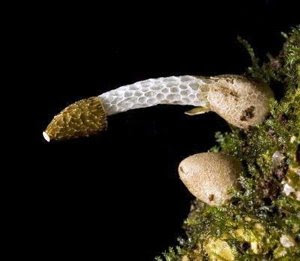
Sunday, July 19, 2009
Why octopuses are awesome: A tribute to our future octopodian overlords
Today I wanted to write a post about an animal that I continue to find endlessly fascinating - the octopus. Octopuses* are an anomaly among animals in that although they are mere short-lived invertebrates (most live 1 or 2 years), they are extremely intelligent, exhibiting curiosity about their environment and having a tendency to play. For example, Kuba and his colleagues found that when given buoyant objects, such as an opaque plastic bottle or a red-and-white Lego block, an hour every day for eight days in a row, octopuses would begin to play with the objects. Some octopuses pulled the objects towards the bottom of the aquarium, while others would jet water against them, playing an underwater version of catch.


Tuesday, July 7, 2009
Herpetologist's Phallus immortalized
According to a post in the Scientific American blog 60-Second Science, herpetologist Robert Drewes has achieved every man's dream: he has been immortalized for his small, distinctively shaped . . . mushroom. As reported in the new issue of the journal Mycologia, the mushroom, dubbed Phallus drewesii, is a novel species of stinkhorn discovered by members of Drewes' research expedition on their latest trek through Africa.
Wednesday, July 1, 2009
Science and storytelling
While catching up on the latest issue of Atlantic, I stumbled upon this article about a massive longitudinal study about what makes us happy. Expecting an article full of wonderful statistical analysis, I eagerly began reading.
The article was not what I expected.
The article was not what I expected.
Subscribe to:
Comments (Atom)
